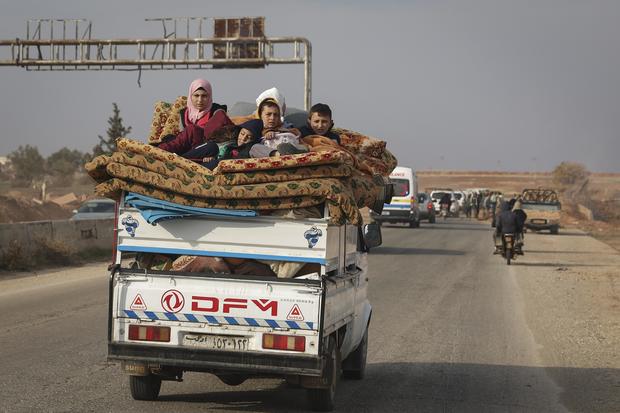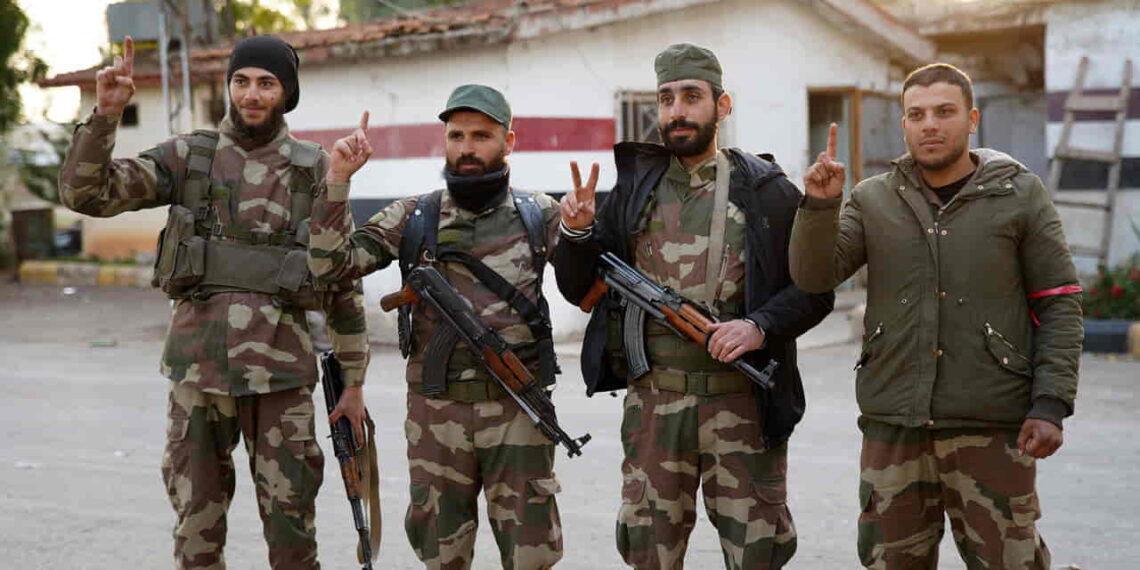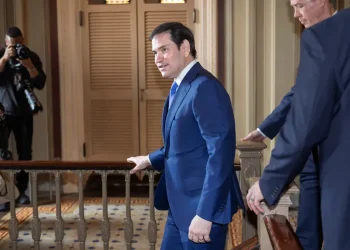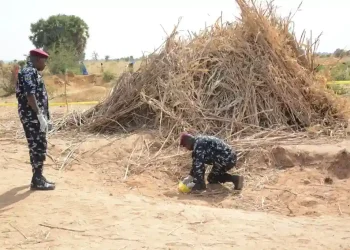Syrian Insurgents Push Toward Damascus in Rapid Offensive
Syrian insurgents have advanced into the suburbs of Damascus in a fast-moving offensive, seizing control of key cities and threatening President Bashar al-Assad’s hold on power. Opposition activists and rebel commanders reported significant progress on Saturday, marking a dramatic shift in Syria’s long-running civil war.
Insurgents Surround Damascus
The Britain-based Syrian Observatory for Human Rights confirmed that insurgents are now active in the Damascus suburbs of Maadamiyah, Jaramana, and Daraya. The opposition is also advancing from eastern Syria toward Harasta, while fighters from southern Syria march on the capital.
Rebel commander Hassan Abdul-Ghani announced via Telegram that the insurgents are in the “final stage” of their offensive, aiming to encircle Damascus. The Syrian military has redirected forces from southern provinces like Daraa and Sweida to defend Homs, a key city connecting Damascus to Assad’s coastal strongholds.
Rebels Gain Ground
In a stunning series of victories, the insurgents have captured several major cities, including Aleppo, once Syria’s second-largest city, and Hama. Thousands of civilians have fled as fighting intensifies, reigniting a conflict that had been relatively stagnant for years.
Abu Mohammed al-Golani, leader of the Hayat Tahrir al-Sham (HTS) group, told CNN that the goal of the offensive is to overthrow Assad’s government.

Assad Faces Waning Support
President Assad, already isolated, now finds his key allies preoccupied with other conflicts. Russia, Assad’s main backer, is heavily engaged in Ukraine, while Hezbollah, which previously bolstered Assad’s forces, has been weakened by prolonged fighting with Israel. Iran, another critical ally, has seen its regional proxies targeted by frequent Israeli airstrikes.
The rapid rebel advances present a significant challenge for Assad’s forces. If the insurgents capture Homs, they could sever the critical supply route between Damascus and the coastal provinces of Latakia and Tartus, where Assad retains strong support.
International Concerns
Qatar hosted a meeting of foreign ministers from Iran, Russia, and Turkey to discuss the escalating conflict. Sheikh Mohammed bin Abdulrahman Al Thani, Qatar’s foreign minister, criticized Assad for failing to address Syria’s underlying issues during the lull in fighting. He warned that the country’s territorial integrity is at serious risk without urgent political intervention.
Strategic Losses
The Syrian government has now lost control of border crossings with Jordan and Iraq, leaving the Masnaa crossing with Lebanon as its only international gateway. U.S.-backed Kurdish-led Syrian Democratic Forces (SDF) have also captured large parts of Deir el-Zour, a strategically significant area linking Iran to the Mediterranean and a vital supply corridor for Iran-backed forces like Hezbollah.
The Road Ahead
With Damascus now within reach of insurgents and government forces stretched thin, the situation in Syria has reached a critical juncture. How the Assad government, its allies, and the international community respond will shape the next phase of this enduring conflict.
This article was rewritten by JournosNews.com based on verified reporting from trusted sources. The content has been independently reviewed, fact-checked, and edited for accuracy, neutrality, tone, and global readability in accordance with Google News and AdSense standards.
All opinions, quotes, or statements from contributors, experts, or sourced organizations do not necessarily reflect the views of JournosNews.com. JournosNews.com maintains full editorial independence from any external funders, sponsors, or organizations.
Stay informed with JournosNews.com — your trusted source for verified global reporting and in-depth analysis. Follow us on Google News, BlueSky, and X for real-time updates.














